
The tug-of-war at Harduf - tots versus fathers. So as not to embarrass the fathers, who were
literally pulled off their feet by their kids, we don’t show them in the picture.
We were standing on a level part of the mountaintop somewhere in northern Israel, watching the last event in the day-long Shavuot festivities at Kibbutz Harduf. It was a tug-of-war between the men (a dozen burly fathers standing holding one end of the rope) and lots of tiny children at the other end.
The fathers were going to be “easy” on the kids, and had decided to make a show of it, puffing and groaning and giving in slowly. Should they let the kids win? This issue wasn’t quite clear to them. Maybe! They decided to play it by ear.
The signal came to begin – and the men were dragged off their feet as if they had been caught in a hurricane. Desperately they dug their heels in, and their footwear ploughed deep furrows in the earth as they were dragged along by an irresistible force. The whole thing lasted less than five seconds, tiny tot power prevailed and the spectators were helpless with laughter.
It had been a hot day, but towards evening it cooled down considerably, and we sat around a campfire and drank fragrant coffee. That day most of the music and singing had taken place on a large wooden stage with a backdrop of bundles of hay and wheelbarrows filled with choice fruit and vegetables from the kibbutz. Afterwards a variety of competitions (throwing eggs at one another, for one) were held in a nearby field. Now, sitting round the fire, we could see the moshav of Adi perched on two gently-sloping mountaintops about a kilometer away.
Between the last Shavuot festivities and this one, 13 babies had been born in the kibbutz. The mothers had come onto the stage with their babies and sang to an audience of hundreds of kibbutniks and scores of visitors milling around tables laden with food, cake and dessert.
Established in 1982, the kibbutz looks like a small mountain village, with bush and tree-lined paths threading amongst the houses. There are amazing views on all sides – on the one side a sloping forest leads into a deep valley with, at the bottom, the Tsipori river. Behind the kibbutz, on the other side of the mountaintop, is an uninterrupted view of more green-covered mountaintops.
Established on holistic and anthroposophic principles, Harduf is known as the largest producer of organic foods in Israel. Besides the usual fields of fruit and vegetables and the sheds of cows and horses (one foal – born on the day of the royal wedding has been named Prince William), there are several large health centers, with schools and housing complexes which cater to emotionally-distressed young people and adults with special needs.
The environmentally-conscious kibbutz cut off its local sewage system from the national system in 2007, and treats and cleans its own waste water, which it uses for watering plants and trees. The kibbutz has plans to set up an ecological park using the recycled water.
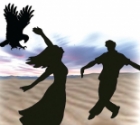 That Certain Smile
That Certain Smile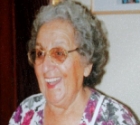 Fay Shelter 1919-2012
Fay Shelter 1919-2012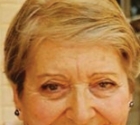 Doreen (Devorah) Goldberg 1924 – 2012
Doreen (Devorah) Goldberg 1924 – 2012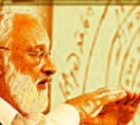 Kabbalah For All
Kabbalah For All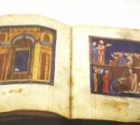 Haggadot
Haggadot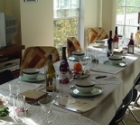 Passover 5767 ...The Holiday of Freedom
Passover 5767 ...The Holiday of Freedom Mike Porter
Mike Porter